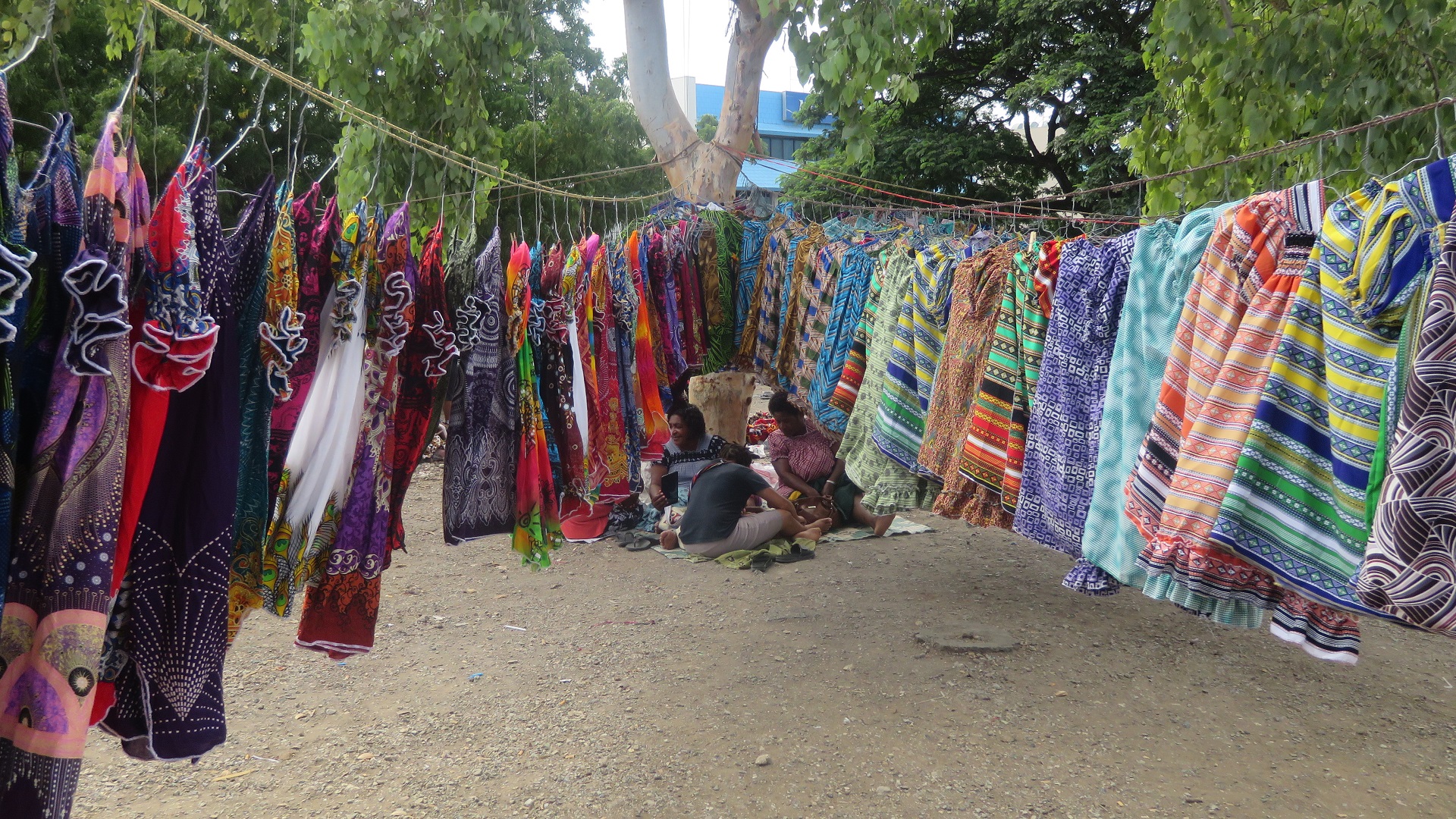According to the Centre for Excellence in Financial Inclusion (CEFI), approximately 85 per cent of PNG’s population does not have adequate access to financial services. A majority of this unbanked population are women.
The Bank of Papua New Guinea (BPNG), a member of the Alliance for Financial Inclusion (AIF) endorsed the Denarau Action Plan in 2016 to be more gender inclusive.
Senise Peter Selling Meri Blouse at Boroko Craft MarketIt was through this plan that the development of the Gender Equity and Social Inclusion (GESI) Policy for Microfinance Institutions in PNG was conceived.
The GESI Policy for Microfinance Institutions was launched in Kokopo, on Wednesday, June 31.
Speaking at the launching was BPNG Governor, Loi Bakani who was pleased with the work that was put into realising the GESI Policy.
“The development of the GESI Policy for Microfinance Institutions in PNG is an important milestone in our work towards full implementation of the Action Plan and reflects our determinationn to close the gender gap in financial inclusion.”
“It provides a framework for PNG micro-finance institutions to integrate gender equity and social inclusion values within their organisations. It is a practical guide helping MFIs to develop their internal capacity, better understand the market segment, and support cultural change to more effectively serve women clients,” he added.
The GESI Policy establishes a framework for Microfinance institutions to address gender equity and social inclusion values and principles within their organisations.
By adopting and, most importantly, implementing the GESI Policy in their workplaces, Microfinance institutions confirm their commitment to develop internal capacity’s, enhance the rights and wellbeing of all employees, better understand the female market segment and support cultural change to serve womenfolk effectively.


